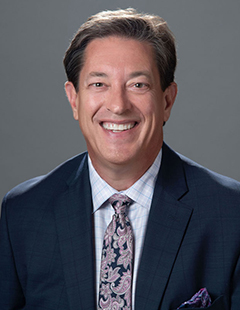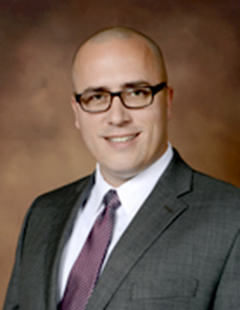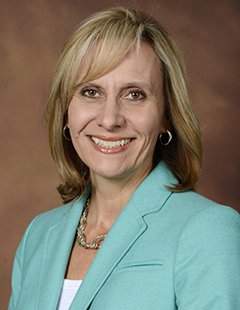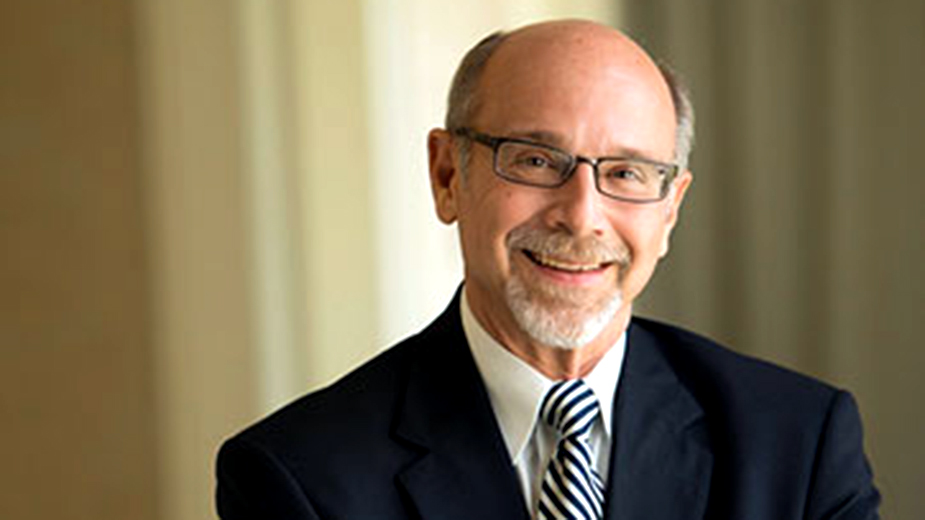YOUNGSTOWN, Ohio – Staffing, supply chain and cybersecurity concerns are among the topics that local accounting firms and business consultants say their clients are reporting – and in some cases are experiencing themselves.
The Business Journal spoke with principals at four accounting firms in the Mahoning Valley about the issues facing them and their customers, many of which relate to the lingering COVID-19 pandemic and also what is happening in the nation’s capitol.
Most clients are maintaining flexibility in terms of being able to conduct business on-site or off-site, and several have decided to keep conducting board and committee meetings virtually, says Brian Himes of Packer Thomas.
“Many are continuing to ramp up staffing, even if it means overstaffing, to allow for turnover,” he adds.
What follows is a summary of the interviews.
HBK CPAs & Consultants: Staying Competitive
It is important to identify the risks in your business,” Jim Rosa, principal at HBK CPAs & Consultants, Canfield, emphasizes. Having an enterprise risk management plan is essential to stay ahead of issues and be prepared to deal with any that arise.
Rosa acknowledges HBK has the same challenges as others businesses in finding the people they need, although the firm has been fortunate to generally have stability in its team.
People have the right to better themselves and sometimes go to work for clients or to other opportunities, he says.
“We can’t do what we do without good people,” he says. “We’ve got to be competitive.”
Among HBK clients, cybersecurity remains a top concern, Rosa says, pointing out that one client recently was the subject of a ransomware attack. “I don’t know if it’ll ever go away. There’s only so many things you can do to reduce the risk,” he laments.
HBK takes the risk seriously, Rosa says. The firm has a secure client portal and email system outside the normal email system, and policies and practices regarding what needs to be sent using the secure system. And it has been moving toward a paperless environment for more than a decade.
The supply chain is a “humongous issue” for clients, whether getting inventory or supplies, “you name it,” he explains. “You also have so many businesses having difficulty finding workers at all levels. And then you’ve got the uncertainty with tax law changes, regulations, interest rates likely going up – that’s a lot.”
As a consequence of the pandemic, HBK accountants and consultants now videoconference more with clients they used to meet face to face, depending on what the client’s protocols are, he reports. The firm adopted a videoconferencing platform about six years ago.
“We’ve gotten to be more nimble in how we communicate, and also learned that we don’t necessarily have to be face to face. Video conferencing has been a huge benefit throughout all of this,” Rosa says.
Because of the pandemic, financial statements need to include information about risks or issues specifically related to COVID-19, although financial reporting otherwise hasn’t changed as a result, he notes.
Bodine Perry: ‘There is still uncertainty.’
Many unknowns remain from the pandemic and clients, depending on their industry, still struggle with labor and supply issues. “In some instances, it’s slowing up their ability to do work, even if the work is there for them to do,” says Bruce Flyak, partner in charge of Bodine Perry’s Canfield office.

Federal funds like the Paycheck Protection Program and employee retention credits helped many businesses get though the uncertainties of the last 18 months. But Flyak advises caution to his clients, who might be in a good position financially now but need to plan for the future.
“You don’t want to get too aggressive,” he warns. “There is still uncertainty. You just want to make sure that they’re being careful with those funds, knowing it’s not something that’s going to be there next year.”
Flyak also advises firms that received PPP money on how to track those funds to make sure everything is in order, in case they are audited.
Investments in cloud-based products and Microsoft Teams in 2019 positioned Bodine Perry for working in the pandemic environment, he
says.
“In addition to focusing on the staff and making sure we attract and retain the top talent, we’re always looking to invest into technology. That’s one of our other things we think is critical to be successful,” he says.
Bodine Perry has grown through acquisition, and has had success in retaining and adding staff, despite the workforce environment. The firm will need to stay competitive in terms of wages and benefits because there seems to be fewer students in accounting classes at universities and business schools, meaning a smaller potential recruitment pool, he says.
“Public accounting is also a bit difficult because we don’t tend to get people to switch over into public accounting later in their career. It usually goes the other way,” with people going into private or industry accounting, or leaving the field entirely to do something else, he says.
SchroEdel, Scullin & Bestic: ‘It creates a lot of confusion.’
From a tax standpoint, the big item facing clients is what might happen in Congress, according to Tom O’Neil, managing partner at Schrodel, Scullin & Bestic, CPAs and Strategic Advisors, Canfield.

“What we don’t know is if they are going to claw back into 2021 and change some of the tax laws. So tax planning is very challenging. It creates a lot of confusion,” O’Neil says. His firm’s staff is meeting with clients to plan based on what is known now, and if changes are made those issues will be addressed when they happen.
Except for a couple of hiccups, clients generally are doing well and business is getting back to normal for them, according to O’Neil.
Contractors could use a boost but hopefully the recently passed federal infrastructure bill will help them move forward. PPP money helped fill the cash flow gap for bridge and highway contractors and helped keep their employees on the payroll.
Overall, business is getting back to normal. “But inflation is a little bit of a concern at this point,” he says.
From a staffing standpoint, SSB is “in the same boat as everyone else” he adds. The firm isn’t struggling to find good people, but headhunters are calling every day to try to get employees to make the switch. “It’s our job to stay connected to our team and make sure they’re as happy as possible.”
The cost to hire has gone up, he acknowledges. The firm has been successful with bringing in new recruits from Youngstown State University, and is now in the process of hiring interns for tax season. It also relies on referrals by existing staff.
“I believe we have three people coming on board soon, probably by Jan. 1. But we actually hired those people about a year ago, and we’ve already hired people to start to work with us a year from now,” he continues. “You need to be proactive to find people as well.”
New hires and existing personnel are looking beyond pay and benefits. On any given day, the firm could have just half the staff in the office because they are taking advantage of the flexibility to work from home if they need to.
“That flexibility is huge. They appreciate that. They appreciate the flexibility of leaving in the middle of the day for personal appointments to see their kids do different things,” O’Neil says. “Even more so now, with everything that’s changed, you have to offer people the opportunity to be flexible enough to have their personal lives and their work lives.”
Packer Thomas: Supply chain, cash flow issues

Supply chain concerns are affecting companies’ ability to generate sufficient cash flow to meet their current obligations. These cash flow issues complicate how to plan or budget for the coming months and determine whether to commit to capital expenditures, says Brian Himes, principal and co-director of accounting and auditing at Packer Thomas in Canfield.
Clients also want to know how newly enacted bills will affect them from a tax perspective, meaning a greater need for tax planning. “Also, there are new reporting challenges for most clients due to upcoming effective dates in changes to leasing standards. Many clients will be in a position of having to record additional assets and liabilities,” Himes says.
How clients are doing financially depends on the industry and sector, says Cindy Wollet, principal and co-director of accounting and auditing at Packer Thomas. Event or venue driven businesses have struggled because of mandates limiting gatherings and crowd size, while others weathered the storm and are doing well.
“Inflationary factors are expected to begin to take a toll on our clients as a whole,” Wollet says.

The need to keep pace with evolving technology – such as cloud-based computing, off-site support and accounting systems – remains a relevant issue for accounting firms, as does demand for qualified individuals and the changes in how people work because of the pandemic, Himes says.
“Keeping employees engaged and energized while being flexible with both their work and personal schedules is key to a productive environment,” he says. “The pandemic-driven changes in how people work, meet with clients and deliver services require greater flexibility adapting to clients’ protocols, work styles and availability.
“This also requires our technology to allow us to work remotely and to communicate with clients as well as to receive and send data to them,” Himes says.
Packer Thomas has invested in information technology infrastructure and hardware to bolster the firm’s ability to meet client needs, “whether on-site or remotely,” Wollet says.
“Cybersecurity has always been a hot topic both for our firm and clients alike,” she adds. “It’s critical to replace outdated software and update processes to combat these concerns. With the increased need to access data remotely and through various applications, the opportunity for cybercriminals to exploit weakness has grown.”
Pictured at top: Jim Rosa, principal at HBK CPAs & Consultants in Canfield.
